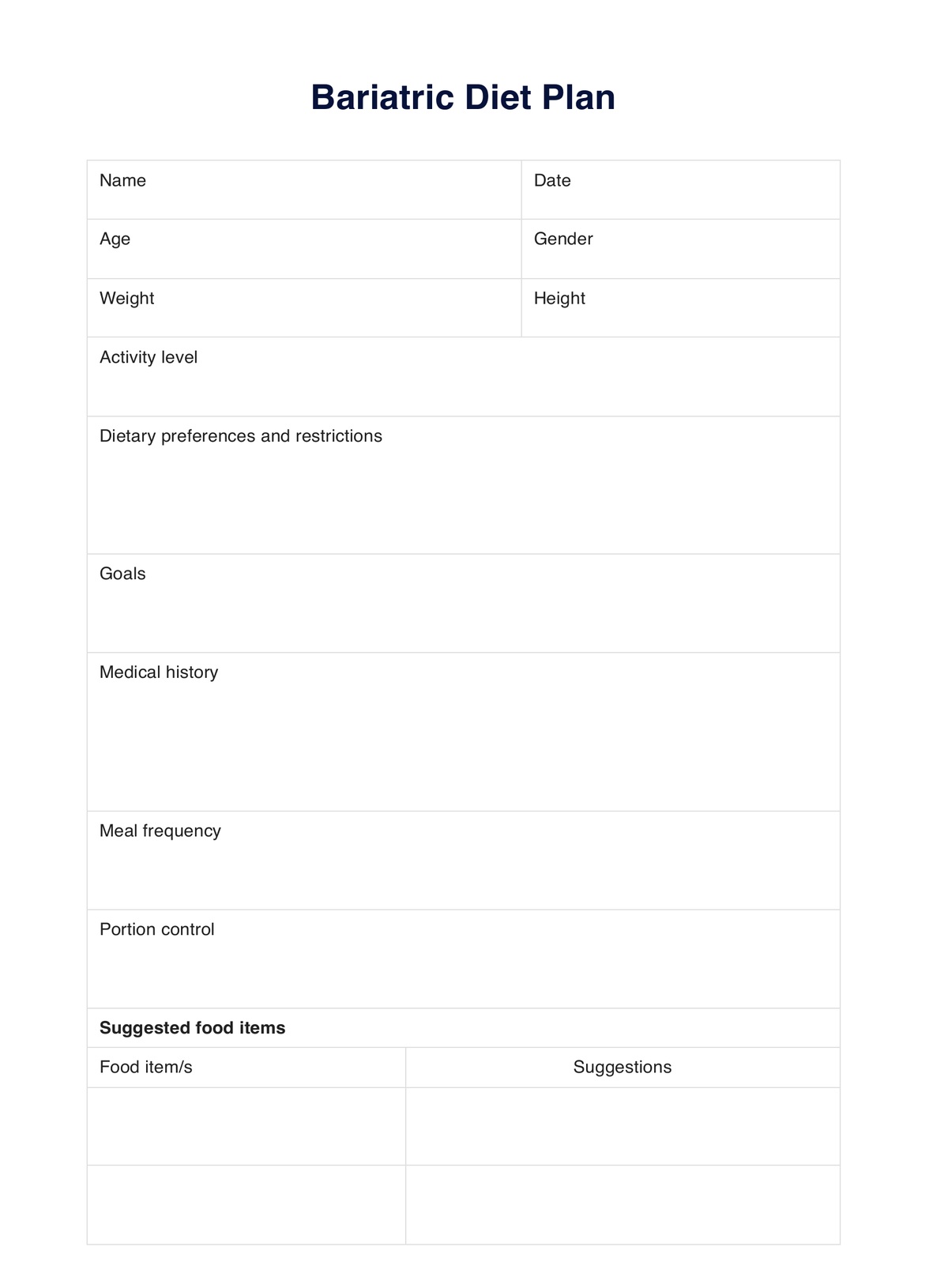No, bariatric diets are not bad. They can be highly beneficial for individuals who have undergone bariatric surgery. The diet helps patients achieve weight loss goals while providing essential nutrients to support their overall health and recovery.

Bariatric Diet
Access a free Bariatric Diet Plan for your clients. Learn how to use the template to support post-bariatric surgery patients achieving their health goals.
Bariatric Diet Template
Commonly asked questions
Bariatric diets are used after an individual has undergone bariatric surgery. The specific timing may vary, but typically, patients will begin following a bariatric diet plan within a week or two of their surgery date. These diets are designed to support weight loss and promote healing after surgery.
The length of a bariatric diet may vary depending on the individual's surgery type, progress, and overall health. Sometimes, patients may follow a bariatric diet for several months to aid in weight loss and recovery.
EHR and practice management software
Get started for free
*No credit card required
Free
$0/usd
Unlimited clients
Telehealth
1GB of storage
Client portal text
Automated billing and online payments











